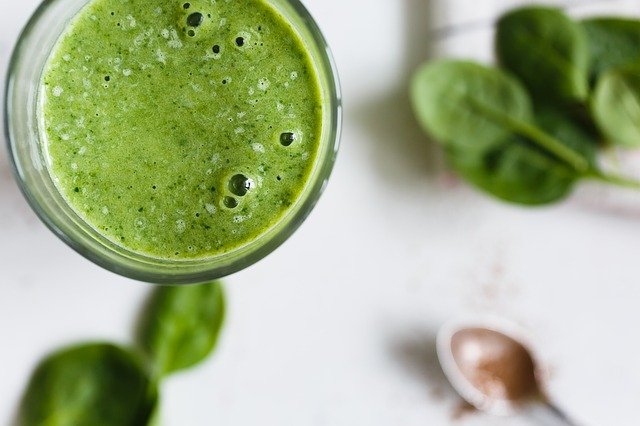
It’s pretty easy to assume that there’s no substitute to natural and whole fruits, vegetables, and leafy greens until you’re introduced to green powders. After getting a ‘mind blown’ moment, you’d think that powdered greens are the only nutrition you need to stay healthy.
But are green powders all that, and more importantly, do they work? Marketing says that these supplements can give you all the nutrition you need for the day, but is that really true?
Let’s take a closer look at green powders, their benefits and potential drawbacks and what you should consider when shopping for one.
Key Takeaways
Here are the main points of the article if you are in a hurry:
- Green powders are supplements that contain ‘powderized’ forms of vegetables, fruits, plant-based foods, and even digestive enzymes or probiotics.
- Greens powders offer numerous health benefits that can support your overall well-being, including increased nutrient density of your diet, improved digestive health, boosted energy levels, reduced risk of cancer and cardiovascular disease, and support for detoxification and healthy blood pressure.
- While greens powder products have natural plant and herb extracts, which make them seem safe to consume at first glance
Green Powders – What are They?
Green powders aren’t just green-colored drinks that work like multivitamins (although a comparison can be drawn between the two). They’re supplements that contain ‘powderized’ forms of vegetables, fruits, plant-based foods, and even digestive enzymes or probiotics.
A typical green powder supplement will consist of dehydrated ingredients, including intangibles such as fiber, plant extract, antioxidants, and minerals. As you may know, the closer you get to the real thing, the more likely that you get the full spectrum of nutrition. Thus, you can get protected against cancer and cardiometabolic diseases. (1)
Every brand tends to have its own ‘proprietary blend’ to set them apart from the competition. These differentiations will also serve to fill niches, such as to improve gut health, workout performance or even to give the mind a nice mental boost. If this is the case, the manufacturer doesn’t have to reveal what they are on their labels so that the blend will remain a secret. (2)
In general, supplements are considered exactly that, products that reinforce the body’s nutritional needs and fill in the gaps with compounds they may not be able to get in an ordinary diet. Perhaps the closest thing a green powder can get is that of a smoothie, albeit in a lesser volume.
Research is still ongoing on whether powdered greens can make a difference in health and well-being. They seem poised and ready to help individuals become better versions of themselves on paper.
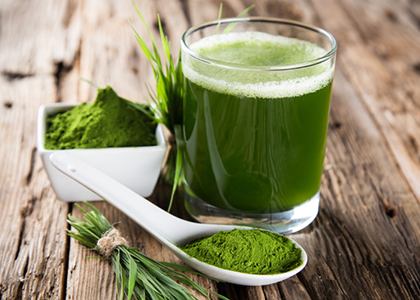
Related: 11 Best Superfood Green Drinks on the Market
Benefits of Greens Powders
Greens powders do have several health benefits, these include:
Increase Nutrient Density Of Your Diet
It is usually impossible to eat the recommended five servings of all vital nutrients per day. This is why many turn to greens powders as a way to supplement their diet and increase the nutrient density of it. As greens powders are typically made from various fruits and vegetables, they can provide you with much-needed vitamins and minerals that may be lacking in your diet.
Improve Your Digestive Health
Some greens powders also contain probiotics and fiber, which can help improve your digestive health. This is beneficial if you are struggling with constipation or have a poor appetite. In addition, greens powders may also help prevent various forms of gut inflammation, such as colitis and Chron’s disease.
Boost Your Energy Levels
If you are an active person and lead an energetic lifestyle, greens powders can help to give you the energy boost that you need. This is because greens powders typically contain a variety of plant-based vitamins and minerals, which are essential for improving your overall health.
Reduce Your Risk Of Cancer And Cardiovascular Disease
Some greens powders also contain antioxidants, such as vitamin C and E, which can help to reduce your risk of cancer and cardiovascular disease. Antioxidants work by scavenging harmful toxins and free radicals from your body, which can damage your cells and lead to the development of various diseases.
Support Detoxification
Greens powders may also help to support the body’s natural detoxification process, as they can act as a fiber source that helps to eliminate harmful toxins from your digestive system. This is especially important if you are looking for ways to improve your overall health.
Support Healthy Blood Pressure
Greens powders are rich in nutrients like potassium, magnesium, and nitrates, which can help to support healthy blood pressure. These nutrients work together with your heart to promote a healthy cardiovascular system, reducing your risk of developing heart disease or experiencing a heart attack.
As you can see, greens powders offer numerous health benefits that can support your overall wellbeing. If you are looking for ways to boost your nutrition and improve your health, greens powders may be a good option for you.
How Can Greens Powders Help You?
Green powders promise several benefits, including bioavailable components and the potential to improve specific biomarkers.
Higher Nutrient Absorption
You could be wondering why there are powdered greens in the market when there are already multivitamin supplements.
Green powders typically have the edge versus multivitamin capsules as they’re more bioavailable. Multivitamin supplements usually include an isolated form of a nutrient, such as vitamin C or folate. However, greens will usually have their ground to a fine powder, making them superior.
Vegetable and fruit concentrates in powder tend to retain nutrients well, and it’s more easily absorbed (and used) by the body. In several studies, participants exhibited higher folate, lycopene, lutein, carotenoids and vitamins E and C whenever they took green powders. (3)(4)
Better Biomarker Aspects
Biomarkers are factors that can contribute to a lower risk of diseases and are something that researchers have been trying to uncover for the longest time.
Inflammation, oxidative stress, and homocysteine are just a few examples of health biomarkers. This means that if the body is experiencing inflammation or oxidative stress, then there’s a higher chance that it will get sick. The same goes for homocysteine levels- the higher the amount, the greater the tendency that the individual will acquire cardiovascular diseases in the future.(4) (5)
Vitamins E and C are well-known antioxidants that ward off oxidative stress. The same goes for inflammatory tumors and cell necrosis markers. Vegetable and fruit concentrates provide the body with folate, which can reduce homocysteine levels. All these things can be supplied with most greens powders, among others. (5)
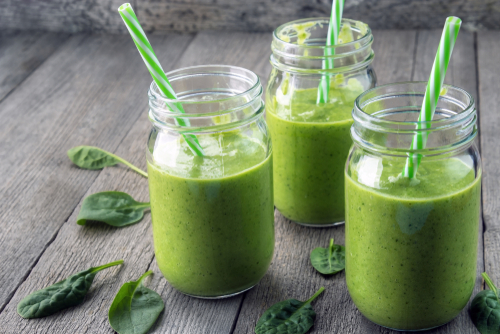
How Can Greens Powders Lead to Harm?
You may think that since green powder products have natural plant and herb extracts, they’re safe to consume. The fact that you can purchase them without needing a prescription seems to cement this fact, but sadly enough this isn’t always the case.
The truth is, powder greens undergo the same regulative process, which means there’s a chance that a product will prove to be ineffective. Worse, some could be contaminated and lead to more harm than good.
Also, even if a green powder supplementt is backed by evidence and tested for purity, some herbal components might interact negatively with medications.
Some Studies Show No Inflammation, Metabolism and Immune Function Improvements
A group of obese women participated in a randomized and placebo-controlled study that had them replace their usual breakfast fares for vegetable and fruit powder concentrates. At the end of 20 weeks, they were tested for fasting glucose, biomarker, immune and metabolic levels. (10)
The results showed that the women had no significant improvements in immune function and metabolic activity. Furthermore, fasting glucose was higher than what it was before the introduction of the powdered greens. However, it was in absolute contrast to similar studies that were in the majority and had noticeable improvements.
Oxidative stress markers DNA and lipid oxidation are often mismeasured. Some report a positive, while others say there was no change. In the same vein, measured antioxidant capacity did not seem to change even when there was an elevation in vitamin E and C.
Minor Recovery and Performance Improvements
Some green powders bill themselves as ‘workout supplements’ in that they improve muscle recovery and physical performance, but several meta-analyses proved it otherwise.
Researchers said that data was low quality due to bias, and concentrates helped very little with muscle recovery and physical activities. Furthermore, it was believed that the foods had relatively no impact on inflammation markers and concluded that these products are not to be recommended to athletes. (7)
…and Gut Health and Digestion
Digestive enzymes are believed to help the body absorb nutrients better and lead to better health. However, none of those claims are supported, although research says that certain enzymes might lead to lower osteoarthritis discomfort.(8)
Probiotics are the same- they’re strain-specific and only offer a narrow set of benefits for the user. Suffice to say, not all probiotics or digestive enzymes work and might depend on the person. Even if the strain is beneficial for you, it might not survive the journey from your stomach to your small intestines. (9)
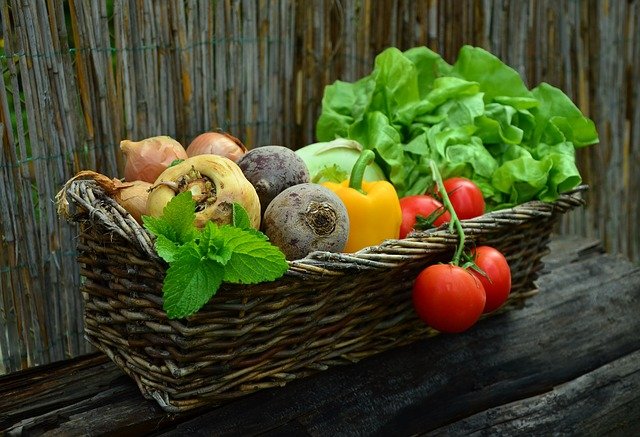
Watch Out for Contaminated Greens
Supplements aren’t required to undergo the same rigorous process as prescription drugs. It’s more of an optional step for them to test their products for purity, efficacy, and safety.
There have been some cases where liver damage was reported for users who tried weight loss supplements. In other instances, some contained substances banned by the WADA or World Anti-Doping Agency. (10)
More isn’t always better, especially if it’s above the recommended daily intake. Unfortunately, supplements seem to think otherwise- they load up on micronutrients as if there’s no tomorrow. For compounds such as vitamin C, the side effect might be minimal, such as diarrhea, but in the case of vitamin A and iron, it could lead to serious health conditions.
Potency is another thing to watch out for since not everything is disclosed on some labels. A brand might advertise its greens as having a hundred different ingredients, which could also mean they have to compromise on dosage to make good on their promise.
… and Unwanted Drug Interaction
Nearly a fourth of the US population are taking prescription drugs alongside supplements. It’s worth noting that some of these supplements have the potential to interact with a medication’s activity, absorption or excretion and produce serious consequences. (11)
Some of the ingredients that are known to interact with medication include St. John’s Wort, goldenseal, saw palmetto, ginkgo biloba, black cohosh, and valerian. That said, you should see a doctor and get the green light before you buy and try a new supplement. (11)
Buying a Greens Powder? Here’s What You Should Know
It can be tricky to navigate the greens powder market and find the right supplement and brand for you. If you’re interested in trying them out, here are a few tips to consider.
What Does It Claim to Do?
Supplements such as green powders can’t make claims about treating or preventing diseases (because there’s really no guarantee), but they can say that some of their ingredients can help support an important function, such as your immune system or gut health, by having vitamin C sources or probiotics, respectively. (12)
The Food and Drug Administration states that manufacturers should only make claims that are based on human studies, but they aren’t required to show evidence. This leads to a somewhat gray area where there are products that say they provide certain health benefits but have been found to be unsubstantiated. (12)
What it means is consumers shouldn’t easily believe the promises of a green powder brand. It’s recommended that you do further research and read up on reviews from those who have tried it. The age-old maxim f it’s too good to be true, it probably is’ applies here as well. (12)
How Will It Benefit You (and at What Cost?)
The general idea of greens powders is that they’re an easier form of nutrition you get from whole fruits and vegetables. They’re like smoothies you can drink in 5 minutes or less- compare that to having to chew several cupfuls of real veggies, the choice might be obvious. Again, this isn’t always the case.
Supplements such as green foods and meal replacements may be convenient but they shouldn’t be a wholesale alternative to whole foods. According to the World Health Organization, you’ll need at least 400 grams of veggies and fruits to keep healthy. Following this recommendation can lead to a significantly lower risk of chronic diseases.
For those who follow a nutritious diet regimen, you may not need to buy a greens food product at all. Individuals tend to gain less from supplements if they regularly eat fruits and vegetables, even if they’re consuming them below WHO recommendations. (1)
People who stand to gain the most from a greens powder are those who rarely eat nutritious foods. Therein lies the cost factor- if you’d compute on a per-gram basis, then going the greens route will be the more expensive option. A serving of apple is around 22 cents, while a greens powder will be around $1 to $3, or even more.
Look for a Sports-Safe Product
Athletes and bodybuilders will want to ensure that everything they consume is legal and safe. To this end, you’ll want to consider a sport-safe supplement that comes from a reputable manufacturer.
It’s easy to go around protocols and say that your greens do not contain illegal substances, but some want to prove themselves to gain customer trust. These manufacturers often seek a third-party platform for testing their supplements for purity and efficacy and advertise them on their website and label. If you look around, you’ll find that they will have the NSF or USP seal of approval, which stands for NSF International and US Pharmacopeial Convention.
With these seals, you’re more likely to have a greens powder that doesn’t contain toxic or banned compounds. Athletes and professional competitors will have a better chance of not having anything derail them from their goals. Those who take prescription drugs can benefit from it as it will likely have a clean and transparent label.
Conclusion – Should You Take Greens Powders?
The merits of powdered greens are readily apparent for those who are not getting enough of the good stuff in their diet. However, it’s worth noting that they shouldn’t be considered total replacements of organic and whole fruits and vegetables as part of a healthy diet.
The best use for a powdered green is to plug in nutritional gaps, especially for those who can’t afford to sit down and chew veggies for half an hour or so. However, you should take the time to seek out real food to get the intangibles, such as phytonutrients, antioxidants, fiber, and vitamins.
References
- Aune, D., Giovannucci, E., Boffetta, P., Fadnes, L. T., Keum, N., Norat, T., Greenwood, D. C., Riboli, E., Vatten, L. J., & Tonstad, S. (2017). Fruit and vegetable intake and the risk of cardiovascular disease, total cancer and all-cause mortality—a systematic review and dose-response meta-analysis of prospective studies. International Journal of Epidemiology, 46(3), 1029–1056.
- Dietary Supplement Labeling Guide: Chapter IV. Nutrition Labeling | FDA. (n.d.). Retrieved February 19, 2022, from https://www.fda.gov/food/dietary-supplements-guidance-documents-regulatory-information/dietary-supplement-labeling-guide-chapter-iv-nutrition-labeling#4-2
- Nantz, M. P., Rowe, C. A., Nieves, C., & Percival, S. S. (2006). Immunity and antioxidant capacity in humans is enhanced by consumption of a dried, encapsulated fruit and vegetable juice concentrate. The Journal of Nutrition, 136(10), 2606–2610.
- Esfahani, A., Wong, J. M. W., Truan, J., Villa, C. R., Mirrahimi, A., Srichaikul, K., & Kendall, C. W. C. (2011). Health effects of mixed fruit and vegetable concentrates: a systematic review of the clinical interventions. Journal of the American College of Nutrition, 30(5), 285–294.
- Lamprecht, M., Obermayer, G., Steinbauer, K., Cvirn, G., Hofmann, L., Ledinski, G., Greilberger, J. F., & Hallstroem, S. (2013). Supplementation with a juice powder concentrate and exercise decrease oxidation and inflammation, and improve the microcirculation in obese women: randomised controlled trial data. British Journal of Nutrition, 110(9), 1685–1695.
- van der Merwe, M., Moore, D., Hill, J. L., Keating, F. H., Buddington, R. K., Bloomer, R. J., Wang, A., & Bowman, D. D. (2021). The Impact of a Dried Fruit and Vegetable Supplement and Fiber Rich Shake on Gut and Health Parameters in Female Healthcare Workers: A Placebo-Controlled, Double-Blind, Randomized Clinical Trial. Microorganisms, 9(4), 843.
- Rickards, L., Lynn, A., Harrop, D., Barker, M. E., Russell, M., & Ranchordas, M. K. (2021). Effect of Polyphenol-Rich Foods, Juices, and Concentrates on Recovery from Exercise Induced Muscle Damage: A Systematic Review and Meta-Analysis.
- Edakkanambeth Varayil, J., Bauer, B. A., & Hurt, R. T. (2014). Over-the-counter enzyme supplements: what a clinician needs to know. Mayo Clinic Proceedings, 89(9), 1307–1312.
- McFarland, L. V, Evans, C. T., & Goldstein, E. J. C. (2018). Strain-Specificity and Disease-Specificity of Probiotic Efficacy: A Systematic Review and Meta-Analysis. Frontiers in Medicine, 5, 124.
- García-Cortés, M., Robles-Díaz, M., Ortega-Alonso, A., Medina-Caliz, I., & Andrade, R. J. (2016). Hepatotoxicity by Dietary Supplements: A Tabular Listing and Clinical Characteristics. International Journal of Molecular Sciences, 17(4), 537.
- Asher, G. N., Corbett, A. H., & Hawke, R. L. (2017). Common Herbal Dietary Supplement-Drug Interactions. American Family Physician, 96(2), 101–107.
- Office of Inspector General — OEI, H. (2012). Dietary Supplements: Structure/Function Claims Fail To Meet Federal Requirements (OEI-01-11-00210; 10/12). October.

Ryan is a former college wrestler and lifelong fitness fanatic with over 25 years in the industry. He’s run half marathons, tackled mud runs, placed in body transformation contests, and coached everything from wrestling to girls’ soccer.
Along the way, he’s tested hundreds of supplements and built a deep well of supplement knowledge. His work has appeared in Muscle & Strength, Testosterone Junkie, The Sport Review, and more. Today, he’s the editor-in-chief of this site, still training hard and helping others reach their goals. Connect with him on LinkedIn below.

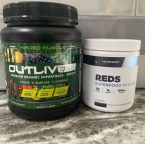

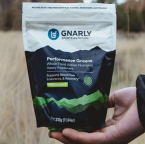
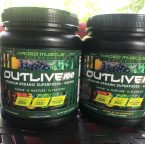
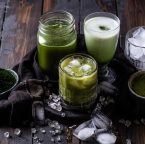
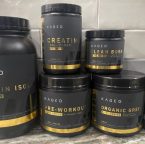
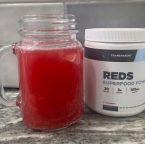
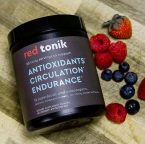
Be the first to comment